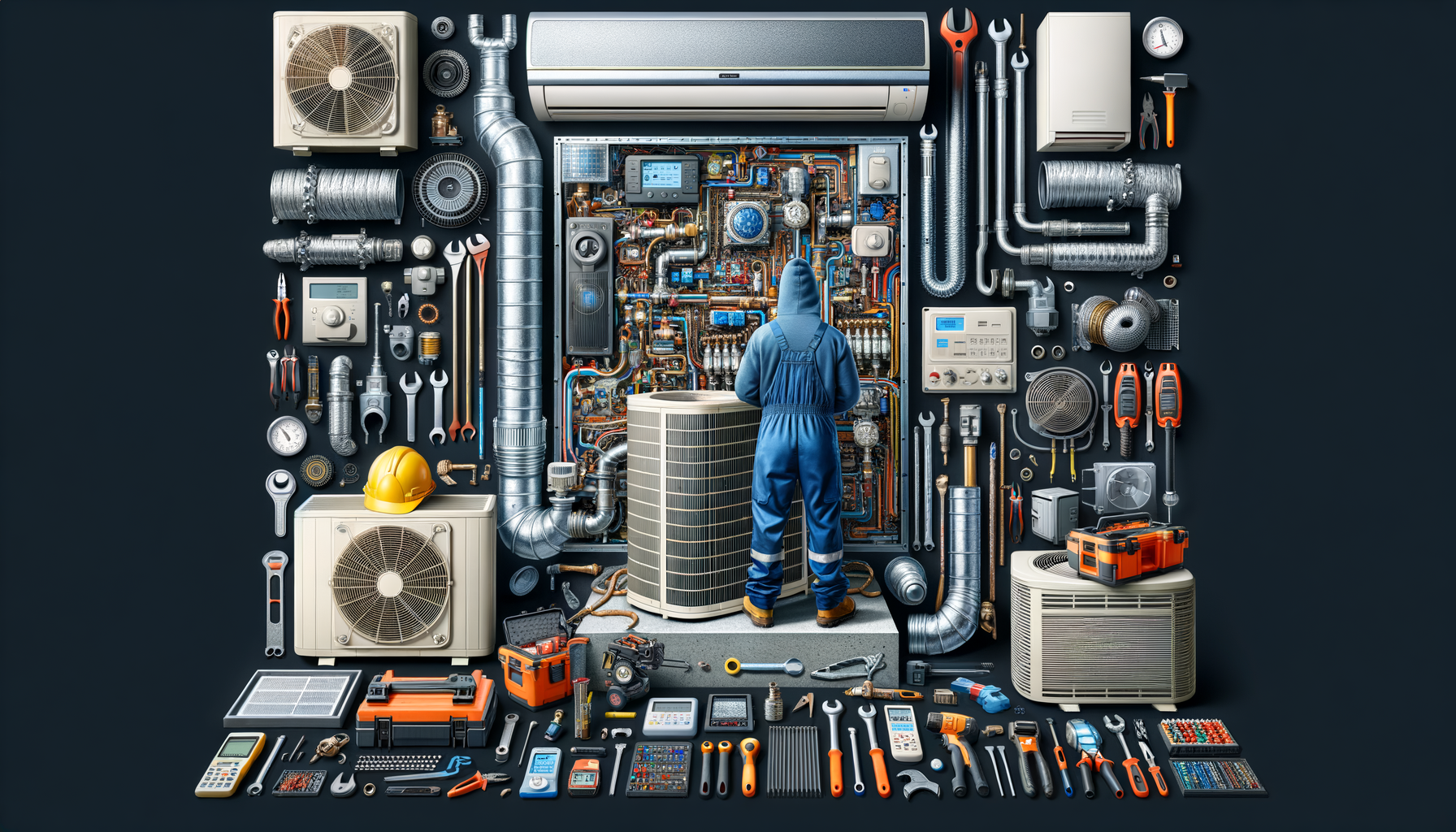Introduction to HVAC Systems
Heating, Ventilation, and Air Conditioning (HVAC) systems are integral to maintaining comfortable indoor environments in both residential and commercial spaces. These systems control the temperature, humidity, and air quality, ensuring a pleasant and healthy atmosphere. The importance of HVAC systems cannot be overstated, as they contribute significantly to energy efficiency and indoor comfort.
As technology advances, HVAC systems have become more complex, requiring skilled technicians to install, maintain, and repair them. This complexity has led to an increased demand for HVAC professionals who possess the technical know-how and expertise to manage these sophisticated systems. Understanding the components and functions of HVAC systems is crucial for anyone interested in this field, as it forms the foundation for effective service delivery.
The Growing Demand for HVAC Technicians
The demand for HVAC technicians is on the rise, driven by several factors. First, the aging infrastructure in many buildings necessitates regular maintenance and upgrades to ensure efficiency and compliance with modern standards. Additionally, the increased focus on energy efficiency and sustainability has led to the adoption of advanced HVAC technologies, which require specialized skills to manage.
Moreover, the expansion of residential and commercial construction projects has contributed to the need for skilled HVAC technicians. As new buildings are constructed, the installation of HVAC systems becomes a critical aspect of the development process. This growth in construction activities further underscores the importance of HVAC technicians in ensuring that these systems are installed and functioning correctly.
In summary, the demand for HVAC technicians is fueled by the need for maintenance of existing systems, the integration of new technologies, and the expansion of construction projects. This trend is expected to continue, making HVAC a promising career path for those interested in technical and hands-on work.
Key Responsibilities of HVAC Technicians
HVAC technicians have a wide range of responsibilities that require both technical expertise and problem-solving skills. Their primary duties include installing, maintaining, and repairing HVAC systems to ensure optimal performance. This involves diagnosing issues, replacing or repairing faulty components, and performing routine maintenance to prevent future problems.
In addition to technical tasks, HVAC technicians must also adhere to safety regulations and industry standards to ensure the safe operation of HVAC systems. This includes following guidelines for refrigerant handling, electrical safety, and equipment installation. Technicians must also stay updated on the latest industry developments and technologies to provide effective solutions for their clients.
Furthermore, HVAC technicians often interact with clients to explain system issues and recommend appropriate solutions. Strong communication skills are essential for building trust and ensuring customer satisfaction. By understanding and addressing the needs of their clients, HVAC technicians play a crucial role in maintaining comfortable and efficient indoor environments.
Challenges Faced by HVAC Technicians
Despite the rewarding nature of the job, HVAC technicians face several challenges in their line of work. One of the primary challenges is keeping up with the rapid advancements in technology. As HVAC systems become more sophisticated, technicians must continuously update their skills and knowledge to remain effective in their roles.
Another challenge is the physical nature of the job, which often involves working in confined spaces, at heights, or in extreme temperatures. This requires technicians to be physically fit and capable of handling demanding work environments. Additionally, the unpredictable nature of HVAC issues means that technicians must be prepared to respond to emergency calls and work irregular hours.
Moreover, HVAC technicians must navigate complex regulatory requirements and ensure compliance with industry standards. This requires a thorough understanding of applicable laws and regulations, as well as the ability to apply them in various situations. Despite these challenges, many HVAC technicians find the work fulfilling and enjoy the opportunity to solve problems and improve indoor comfort for their clients.
Conclusion: The Future of HVAC Careers
The future of HVAC careers looks promising, with continued demand for skilled technicians in the industry. As buildings become more energy-efficient and environmentally friendly, the need for knowledgeable professionals to manage these systems will only increase. HVAC technicians who embrace ongoing education and training will be well-positioned to succeed in this evolving field.
For those considering a career in HVAC, the opportunities are vast and varied. From installation and maintenance to system design and energy efficiency consulting, the HVAC industry offers a range of career paths for individuals with diverse interests and skills. By staying informed about industry trends and advancements, aspiring HVAC technicians can build a rewarding and impactful career in this essential field.
In conclusion, the role of HVAC technicians is crucial in ensuring the comfort and efficiency of indoor environments. With the right training and dedication, individuals can thrive in this dynamic and growing industry, contributing to the well-being of communities and the sustainability of our planet.



Leave a Reply